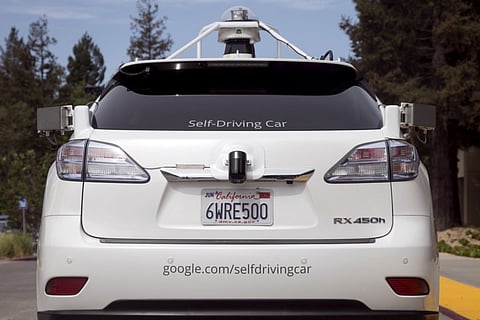Do androids dream of electric sheep?
Unfortunately, gradually phasing out the human element in the workplace comes at the cost of, well, the human element

On Tuesday night, the computer programme AlphaGo beat the world Go champion Lee Se-dol for the last time in a 4-1 near-perfect victory.
Lee has since recovered a single game but this remains the end of a series of Artificial Intelligence (AI) victories over humans that begun all those years ago in 1997 when IBM’s Deep Blue beat the world chess champion Gary Kasparov. Back in 1997, things were a lot easier: All Deep Blue had to do was run a brute force calculation based on the forty-odd potential moves it could make per turn and make the most statistically sound one. In Go there are over 200 potential moves per turn leading to a number of possible outcomes greater than there are atoms in the universe. What was needed was a programme capable of making intuitive decisions and developing adaptive strategies. Basically, it needed to play the game like a human. AlphaGo’s victory reflects a pattern being seen throughout the world of AIs becoming capable of doing our jobs and often, frankly, doing them better.
Just look at Google’s self-driving cars, capable of reading their surroundings in 360 degrees and reacting accordingly. In many ways this is much more than a human can achieve, especially more than a human tired after a long day at work or distracted by the overwhelming need to take a selfie. In more than a million miles of travel, Google’s cars have been involved in only one accident that they caused, compared to dozens of accidents where human-driven cars were at fault.
The advent of sophisticated technology is great. Who doesn’t enjoy having a weirdly co-dependent relationship with Siri? But, unfortunately, gradually phasing out the human element comes at the cost of, well, the human element. If you have self-driving taxis and self-driving trains, these raise the question of what happens to the people who used to drive them. Society may become a victim of its own success as many are left unemployed by technology’s advance.
There is an argument to be made that if humans aren’t doing the job they can be paid to maintain the machines that are doing the job or do different, more complex jobs that a machine can’t manage. Just look at the highly automated ‘Weird Hotel’ in Japan. There, hotel guests can expect to be greeted at the reception by a robotic English-speaking Dinosaur, wearing a bow tie and porter robots whizz through the corridors. Here, humans are still needed to perform harder tasks like making the beds and maintaining their dinosaur leader. This presents two questions, though: How long will it be until the machines can manage the more intricate jobs? At the rate at which technology is progressing (scientists didn’t think a computer would win at Go for another decade) I can’t imagine it will be long. Secondly, how much skill is needed to maintain robots that continue to increase in complexity? Asking a normal person to fix a faulty state-of-the-art, robot-dinosaur-receptionist seems optimistic.
The worry is that low-skilled workers will be rendered redundant by technology’s advance. However, advances in technology have plagued society throughout history, but they have often had a silver lining. In the 1800s, new technologies increased agricultural productivity to the point that one worker could do work that previously needed ten workers. This led to massive redundancies, but drove much of the population into the cities where they became the driving force behind the Industrial Revolution.
Progress may be a good thing and the rise of the AI will not threaten many industries for a while. However, the writing is already on the wall: Companies like the firm Uber have shown great interest in a fleet of automated taxis; there have been widespread strikes in London over replacing metro ticket offices with automated ticket machines (which for me remain a source of daily frustration and fruitless, painful wall-kicking) and increasing reliance on drones in warfare renders ground forces less and less relevant.
The key now is to find or create a new, accessible employment sector that does not require high-skill qualifications to avoid creating an underclass of unemployed, low-skilled workers as casualties of AI. This particular dilemma has me scratching my head at the moment. More sustainably, in the long term, governments should attempt to make education more relevant to the economy of the future. Increasing emphasis on the management and construction of the machines that will run our lives in education programmes across the world will help equip the next generation to find employment.
Alternatively, we can throw in the towel and build a leisure society like the one in Pixar’s much-beloved film WALL-E, where we all sit on hover-chairs in red jumpsuits and allow machines to do our jobs, play our sports and generally live our lives for us.
Felix Vardag-Hunter is an intern at Gulf News.



